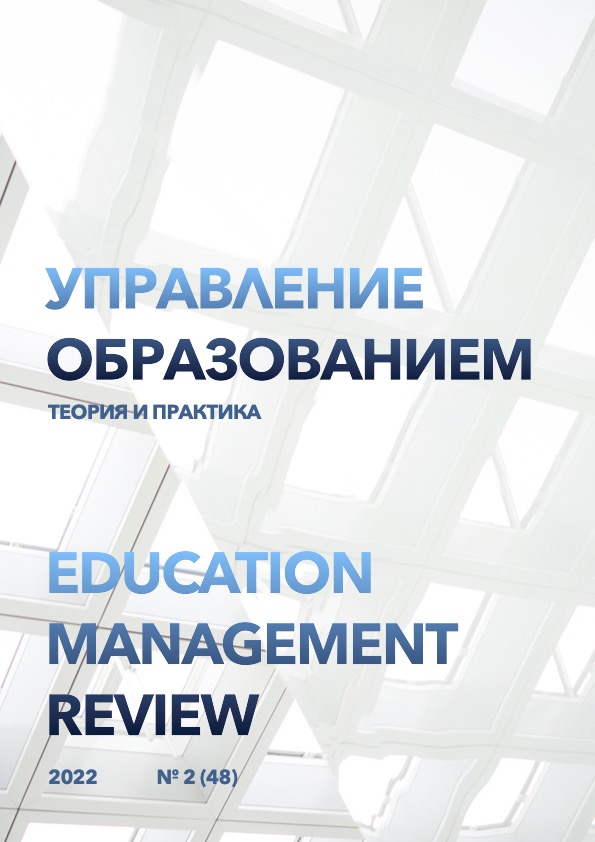Formation of economic competencies in the process of studying financial disciplines at the profile level of education
DOI:
https://doi.org/10.25726/f3302-9565-5037-uKeywords:
education, economics, pedagogy, research, trainingAbstract
According to a study by the World Economic Forum 2021, the development of artificial intelligence, robotics and other modern technologies will lead to the destruction of 75 million jobs by the end of 2022, but at the same time their introduction will create 133 million new jobs. This directs the innovative development of the Russian educational system to a new stage of fundamental changes. It is important that these substantial cardinal changes proposed by the Ministry of Education of the Russian Federation in the draft Federal Standard of Basic Secondary Education are aimed at developing new skills among applicants for education, deepening their specialization in order to be professionally in demand on the labor market. But the problems of economic education in gymnasiums and colleges in Russia remain unresolved, which is very relevant in the era of globalization. In order to conduct a scientific study to determine the level of economics education in general secondary education institutions, we have created a working group, which includes experienced scientists, methodologists and teachers, because the academic subject "economics" is derived from the basic model plan and transferred to the variable part, which threatens the existence of this subject in general. In the 2019-2021 academic year, changes to the curricula came into effect, where economics is represented only at the profile level, and the absence of the Unified State Exam in this subject makes it prestigious among other school subjects. Nevertheless, teaching economics at the profile level makes it possible to increase the level of variability through elective courses.
References
Веретенникова Н.В., Загвязинская Н.М., Куранова Н.А Развитие теории инновационной экономики начала XXI века и проблемы инновационного роста в России // Вестник Тюменского государственного университета. Социально-экономические и правовые исследования. 2015. Том 1. № 2 (2). С. 152-160.
Ковалевич В.Т. Основные аспекты исследования человеческого капитала в системе образования // Вестник Красноярского государственного аграрного университета. 2014. №6. С. 315-320.
Ксенофонтов А.А. Мониторинг экономического состояния субъектов РФ в разрезе экономической деятельности. Актуальные проблемы управления. Материалы 23-й Международной конференции. Государственный университет управления. Москва, 2019. С. 340-344.
Лобашев В.Д., Лобашев И.В. Мотивация в процессах профессионального образования. LAP LAMBERT Academic Pudlishing, 2012. 543 с.
Неопуло К.Л. Кредитование малого и среднего бизнеса: возможность гарантийной поддержки. В сборнике: Сборник научных трудов кафедры банковского дела и предпринимательства ФГБОУ ВО «Государственный университет управления», Институт экономики и финансов. 2017. С. 20-23.
Панюкова С.В. Управление человеческим капиталом в условиях информационного общества // Статистика и Экономика. 2014. № 1. С. 183-186.
Рязанова Г.Н., Толкачев П.С. Роль государства в развитии экономики России: современный этап // Вестник университета. 2018. №5. С. 24-27. DOI: 10.26425/1816-4277-2018-5-2427
Сазанова С.Л. Социально-экономические экосистемы и ценности хозяйственной деятельности // Путеводитель предпринимателя. 2019. №3. С. 137-148.
Слепко Ю.Н., Цымбалюк А.Э. Формирование информационной основы учебной деятельности студентов в период обучения в вузе // Ярославский педагогический вестник. 2016. №1. С. 188-193.
Суркова Л.Е. Снижение рисков взаимодействия организаций на основе использования интернет-ресурсов // Естественные и технические науки. 2019. Т. 128. № 2. С. 193, 194.
Сыроваткина Т.Н. Федорова О.И., Зуева Е.Г. Особенности образовательной услуги как продукта экономики образования // Вестник Оренбургского государственного университета. Экономические науки. 2012. №13 (149). С. 344-348.
Талых А.А. Лобашев В.Д. Особенности построения процесса обучения в образовательной области "Технология" // Вестник Костромского государственного университета им. Н. А. Некрасова. 2016. Т.22. №.1. С. 201-205.
Шарипов Ф.Ф. Цифровое развитие международного бизнеса. В сборнике: Приоритетные и перспективные направления научно-технического развития Российской Федерации материалы II-й Всероссийской научно-практической конференции. 2019. С. 112-113.
Kramer B. The second machine age: work, progress, and prosperity in a time of brilliant technologies, Technovation, 2015. 71 p. URL: https://dx.doi.org/10.1016/j.technovation.2015.
Richter C., Kraus S., Durst S., Giselbrecht C. Digital entrepreneurship: Innovative business models for the sharing economy. Creativity and Innovation Management. 2019;26(3):300-310.




